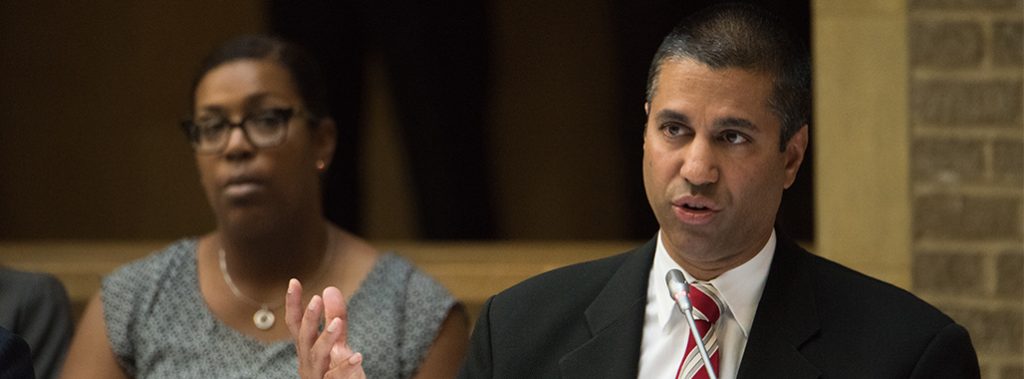As technology develops, the internet has become an increasingly important part of our every day lives. We use smart phones and computers for everything from emails to streaming videos. The creation of smart appliances means that the internet is also used to create shopping lists, turn on lights and monitor home security. With more data being sent over the internet, download and upload speeds have grown in importance, and now, service providers could be looking to cash in.
On Dec. 14, the Federal Communications Commission will vote on Chairman Ajit Pai’s plan to eliminate the net neutrality laws that had previously prevented internet providers from charging extra to load websites at a higher rate of speed. The removal of these safeguards would pose a serious threat to the distribution of information and ideas along with the concept of the internet as an open forum.
Net neutrality regulations were first created under former President Barack Obama’s administration in 2015. These regulations forced internet service providers to treat all website traffic the same, so they could not increase speeds on speed testing sites only to slow them on Netflix.
The FCC created and has been in charge of enforcing these regulations over the past two years. However, President Donald Trump’s appointee Pai has made net neutrality a focal point over the past year by advocating for the end of those regulations and a return to open market.
“Under my proposal, the federal government will stop micromanaging the internet,” Pai said in a Nov. 21 statement announcing his plan. “Instead, the FCC would simply require internet service providers to be transparent about their practices so that consumers can buy the service plan that’s best for them.”
Pai’s plan is supported by telecom companies who have issued statements saying that, under the existing rules, they are unable to offer their customers a variety of service packages so that they can choose the one that meets their needs. Essentially, if the regulation changes go through, cheaper options with lower speeds could be offered to those who don’t mind always waiting for their videos to buffer.
While cheaper internet service can be a good thing, the larger problem with removing the regulations is that service providers can arbitrarily decide the speed at which it wants to direct traffic to certain websites. The only restriction that would exist under Pai’s plan is that service providers would have to be open in their policy descriptions about what sites it limits traffic to.
Internet giants Netflix and Google are justifiably concerned about the repeal of net neutrality, arguing that allowing service providers to differentiate fast and slow lanes of internet traffic would allow them to serve as gatekeepers of the internet and entertainment. These companies could slow traffic to sites that they ideologically disagree with or that contain information and articles that are negative towards those companies.
The implementation of the net neutrality rules recognized the internet as a public utility, an essential service similar to phones and electricity. This designation recognized the important service that the internet provides in the dissemination of information and ideas.
Allowing telecom and internet service providers to decide how to direct internet speeds to certain websites threatens this idea as slowed response times on a website can negatively affect the traffic that the site receives. In order to preserve the internet’s open forum and neutral characteristics, the net neutrality regulations need to remain in place.
